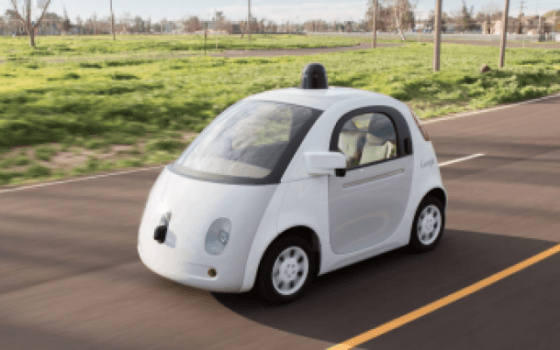Theme:
- Driverless vehicles are steadily becoming a reality. They are also referred to as autonomous or self-driving vehicles. These cars are capable of sensing their environment and navigating without human intervention.
In Favor:
- Estimates suggest nearly 80% of car crashes are due to human error. Self-driving cars can eliminate the possibility of human error and hence reduces the number of accidents.
- Driverless cars can help in reducing traffic by taking the route that has less traffic using ‘vehicle to vehicle’ (v2v) communication.
- Autonomous cars can be used by people with special needs to drive safely on the roads. They can travel anywhere without depending on anyone.
- Some of the driving licenses are not genuine, which makes the traffic conditions worse. Therefore, autonomous cars could be a way to solve this problem.
- The majority of driverless cars are going to be Electric Vehicles (EVs) which will help in decreasing the pollution level in the country, which is also one of the major issues the country is facing.
- These cars could also prove as a safer means of transportation regarding women’s safety in India.
- If driverless cars are allowed in India, they can be used for a variety of other purposes also such as delivery or pickup service, which will also save time and human resources.

Against:
- Traffic on Indian roads is diverse due to the presence of different types of vehicles such as auto-rickshaws, rickshaws, hard-carts, trucks and cycles and animals such as cows, camels and elephants. Therefore, technology cannot be operated smoothly in this environment.
- Autonomous vehicle technology is going to be costly and out of the reach of average Indians, making it a status symbol for the few thus enlarging the gap between the rich and the poor.
- In case of traffic jams or traffic light failure, traffic police officers direct the traffic but in this case, these cars won’t understand the human signals which will make it difficult to control the traffic, especially when these cars are going to be driven in conjunction with conventional vehicles.
- These cars would also require human monitoring to some extent. At present, a human emergency driver is required while an autonomous car is on the road.
- New service stations need to be set up for the maintenance of these cars hence, which can be a costly choice considering the present status of the world economy.
- Furthermore, autonomous vehicle technology can have a negative effect on the employment problem of the country. For taxi drivers, Uber, Ola, and similar taxi services remain as a source of employment. Once autonomous taxi services become mainstream, these companies will have a tendency to shift towards them for they will be cost-friendly and safer. In the year 2019, Mr Nitin Gadkari, the Road and Transport Minister of India said that he won’t allow driverless cars in India as it will result in job losses, instead, India will focus on training drivers with adequate skills that will create 50 lakh jobs and also aims to improve the public transport in the country.
- Even though driverless cars reduce vehicular accidents caused by human error, there are several cases of driverless cars causing accidents.
Conclusion:
In a labour-intensive economy like India, where the percentage of the working population, especially unskilled labour is high, it is a bit risky to introduce driverless cars. But that shouldn’t stop us from utilizing the latest technologies for our benefit. Moreover, driverless cars are now working well only on highways and are facing challenges on normal roads. So when the technology is fully developed, it is better to allow autonomous vehicles in India.
Photo Credits: Automobile Italia under CC 2.0
Your Turn…
What is your opinion on this topic? Express your thoughts in the comment section below. And subscribe to our blog to read answers to the trending GD topics.
Copyright @ Group Discussion Ideas.

